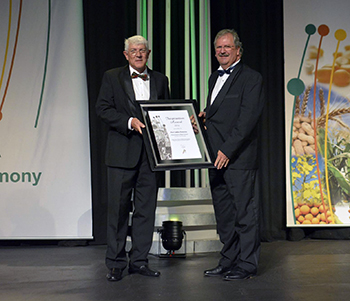Latest News Archive
Please select Category, Year, and then Month to display items
12 October 2020
|
Story Arina Engelbrecht
|
Photo Supplied
 Arina Engelbrecht from Organisational Development and Employee Well-being believes physical activity has a number of benefits for one’s health, including stress relief.
Arina Engelbrecht from Organisational Development and Employee Well-being believes physical activity has a number of benefits for one’s health, including stress relief.
Being physically active plays a big role in preventing the development of mental-health problems and in improving the quality of life of people experiencing mental-health problems.
Treatment for depression
Physical activity can be an alternative treatment for depression. It can be used as a stand-alone treatment or in combination with medication and/or psychological therapy. It promotes all kinds of changes in the brain, including neural growth, reduced inflammation, and new activity patterns are formed that promote feelings of calm and well-being. It releases endorphins – powerful chemicals in the brain that energise your spirit and make you feel good.
Physical activity can be very effective in relieving stress. Research in adults has found that physically active individuals tend to have lower stress levels compared to individuals who are less active. It also leads to improved sleep. When a person sleeps better and feels more rested, overall quality of life improves. They cope better with daily life stressors.
Reduce Alzheimer's risk
Regular physical activity can reduce your risk of developing Alzheimer's disease by up to 50%. It can also slow down further deterioration in those who have already started to develop cognitive problems. It stimulates the brain’s ability to maintain old connections as well as to make new ones.
A study asked people to rate their mood immediately after periods of physical activity (e.g. going for a walk/run, cycling, doing housework) and periods of inactivity (e.g. reading a book or watching television). Researchers found that participants felt more content, more awake, and calmer after being physically active compared to after periods of inactivity.
In conclusion, people who are physically active feel a sense of well-being, feel more energetic throughout the day, sleep better at night, have sharper memories, and feel more relaxed and positive about themselves and their lives.
“Being physically active not only changes your body, it changes your mind,
attitude, and your mood.” – Arina Engelbrecht
Plant researcher receives prestigious Grain SA award
2016-10-21

Prof Zakkie Pretorius from the UFS Department
of Plant Sciences with Andries Theron,
vice-chairman of Grain SA. Theron presented
the award to Prof Pretorius at Grain SA’s a
nnual gala event, which was held in Midrand
this year.
Photo (read more): Supplied
Photo (spotlight): Charl Devenish
A researcher in the Department of Plant Sciences at the University of the Free State (UFS), Prof Zakkie Pretorius, received the prestigious Grain Producer of the Year Inspiration Award during the annual gala event of Grain SA. Grain SA provides strategic commodity support and services to South African grain producers to assist in the sustainability of the sector.
This award is presented to individuals or organisations in appreciation of excellent contributions to the grain industry. These individuals have also achieved extraordinary results in their respective fields.
Research in the interest of food security
Prof Pretorius has been involved in research on plant diseases and food crops for the past 38 years. His research focus, rust diseases in crops, is especially important for food security.
According to Prof Pretorius, who collaborates with an extensive network of specialist colleagues, his research covers a variety of topics including rust race identification, the discovery of new resistance genes, characterisation of resistance expression in plants, and the mapping of genes. His focus is not only on wheat, but he also researches rust diseases in oats, barley, maize, dry beans, lentils, sunflowers, and soybeans.
Breeding of rust-resistant varieties gains scientific basis
Locally, he has been contracted for several years by the Winter Grain Trust to annually evaluate commercial wheat cultivars and elite germplasm. This information is regularly passed on to the relevant seed companies and breeders, and is also included in the production guidelines of the Agricultural Research Council for disease risk assessment. His research places the breeding and selection of rust-resistant varieties on a solid scientific foundation. A living collection of rust fungus cultures and a large germplasm collection are maintained at the UFS under his supervision.